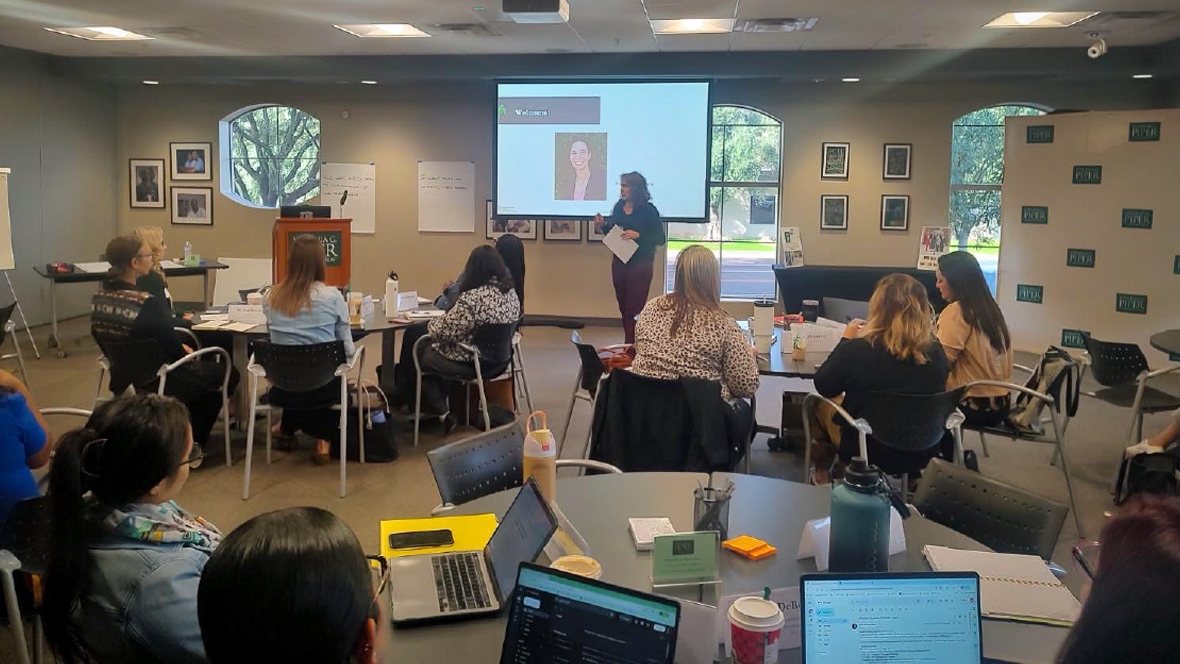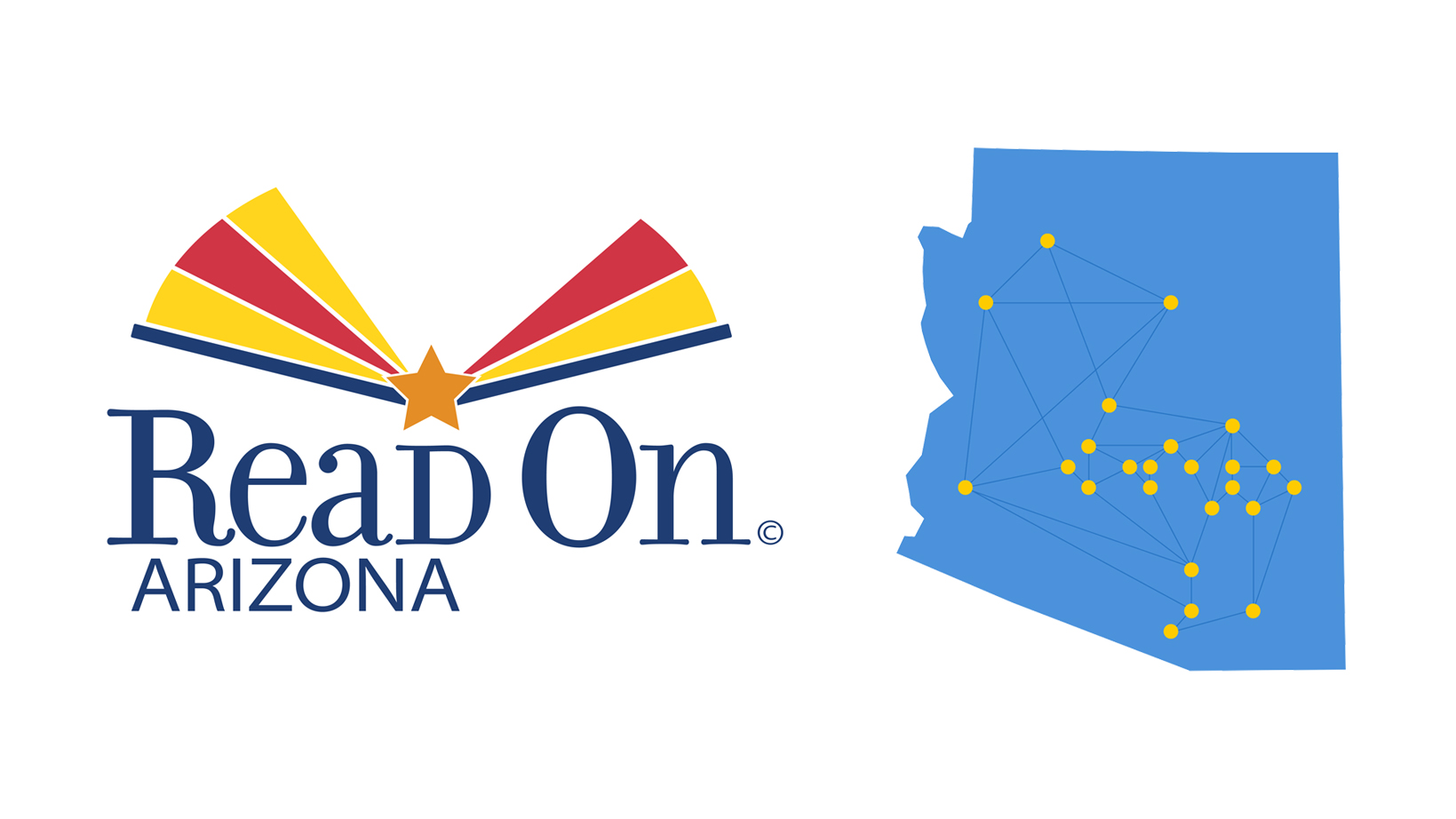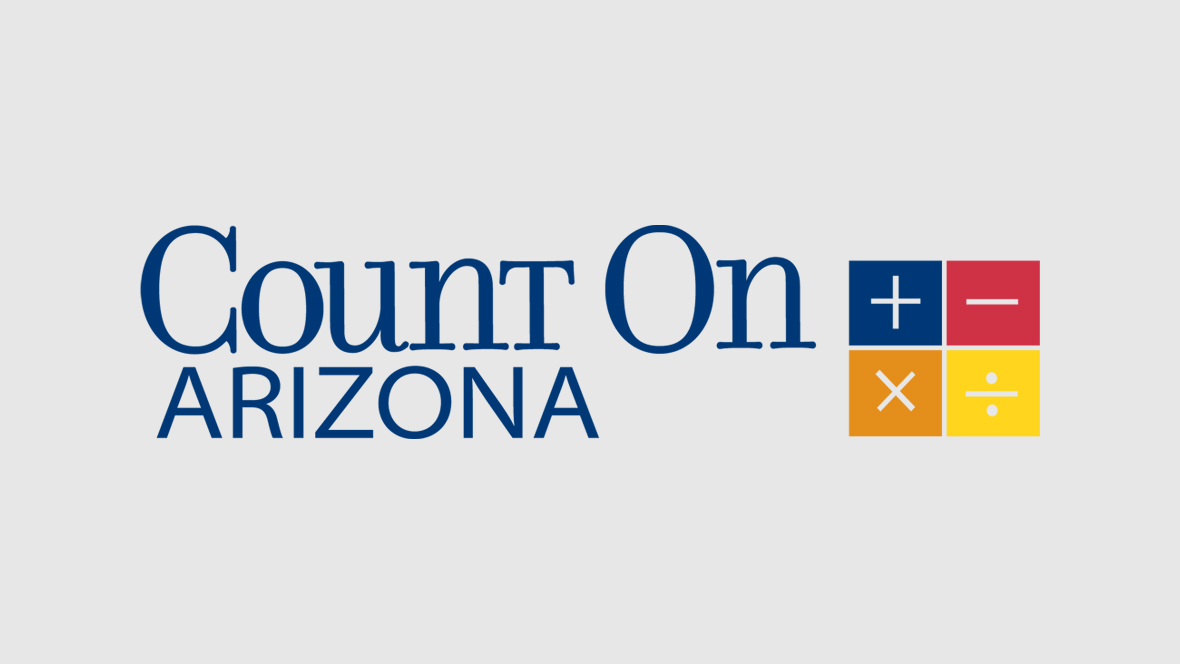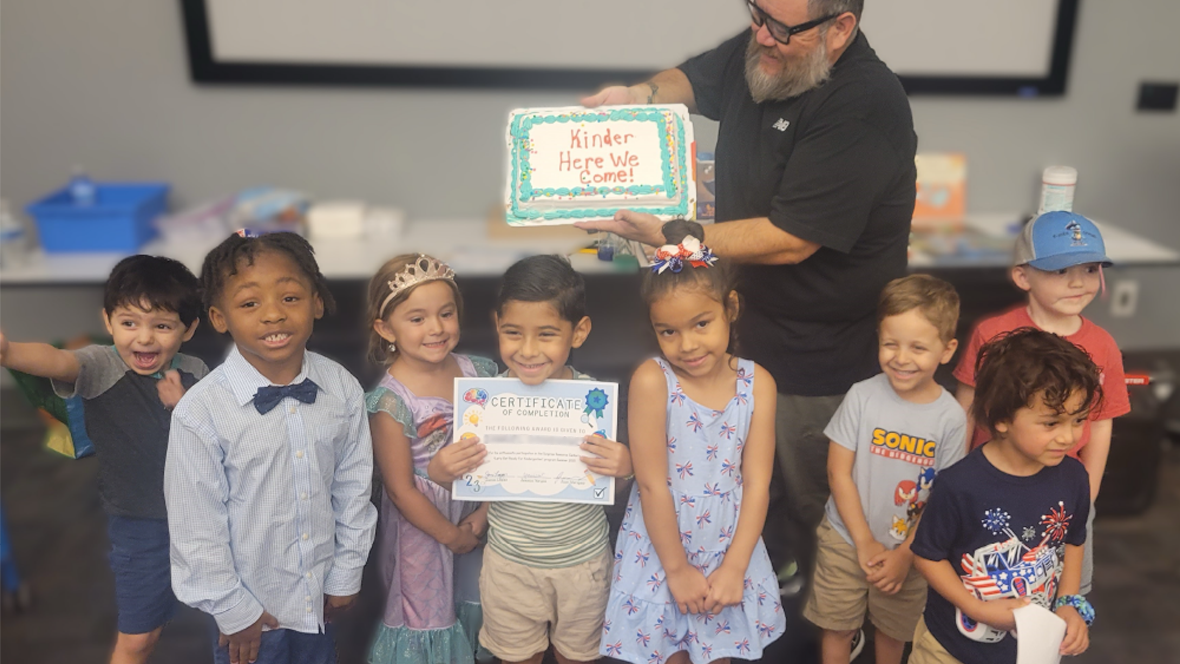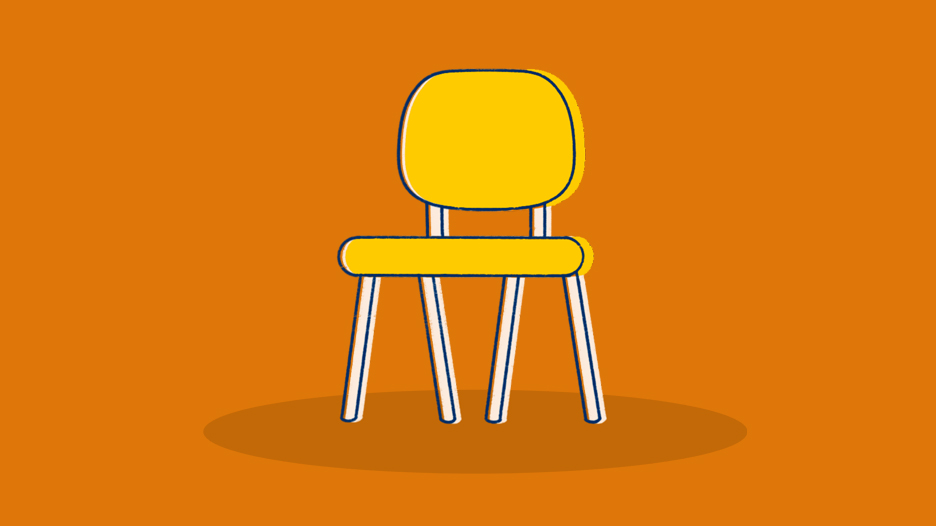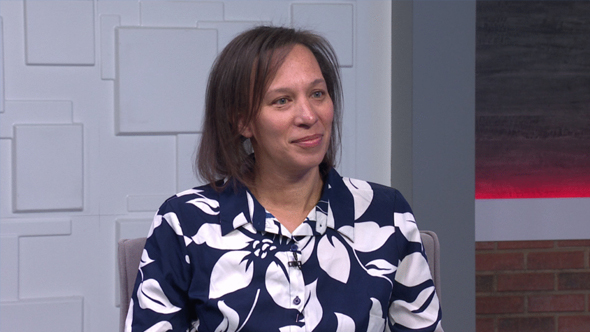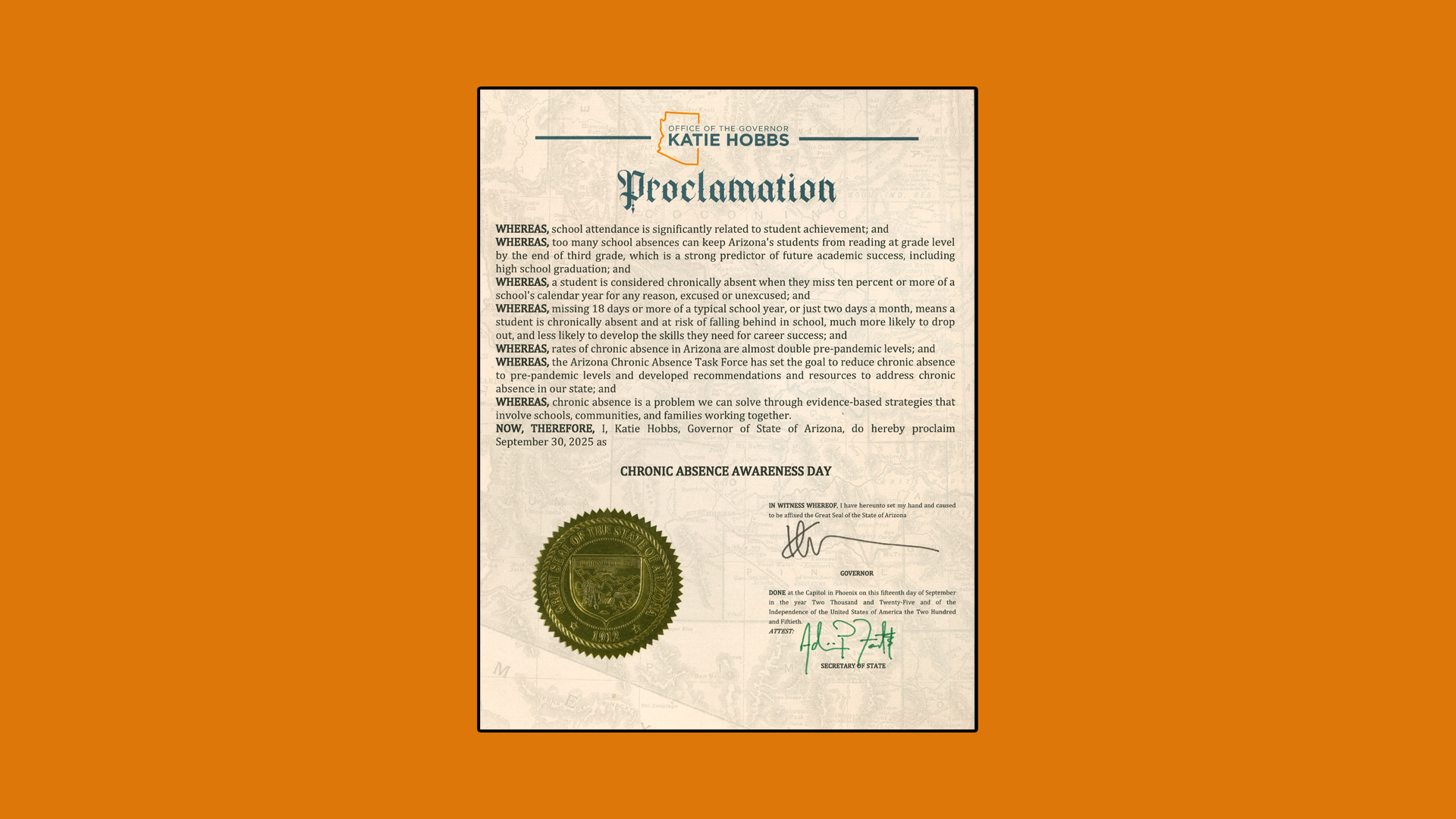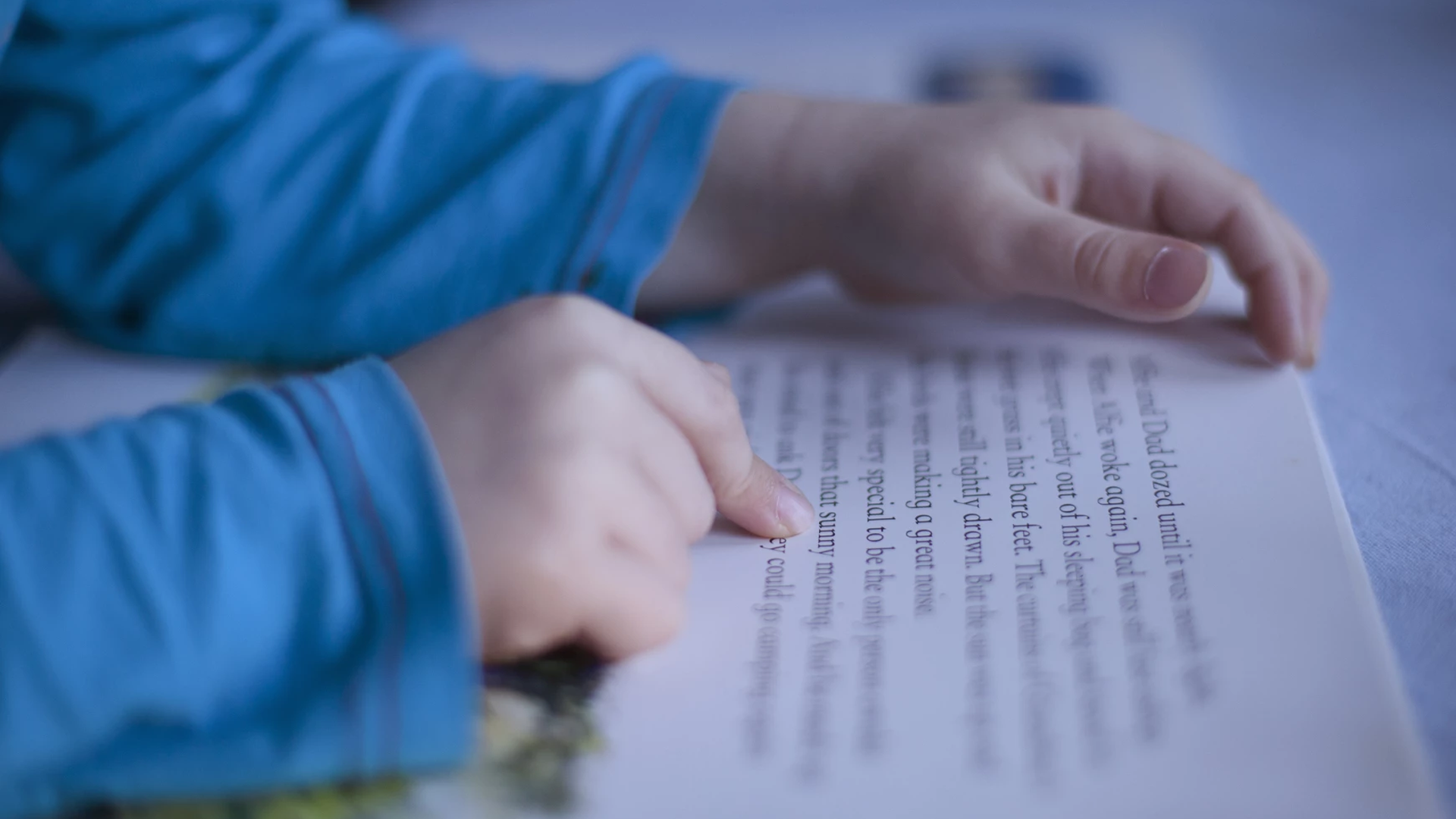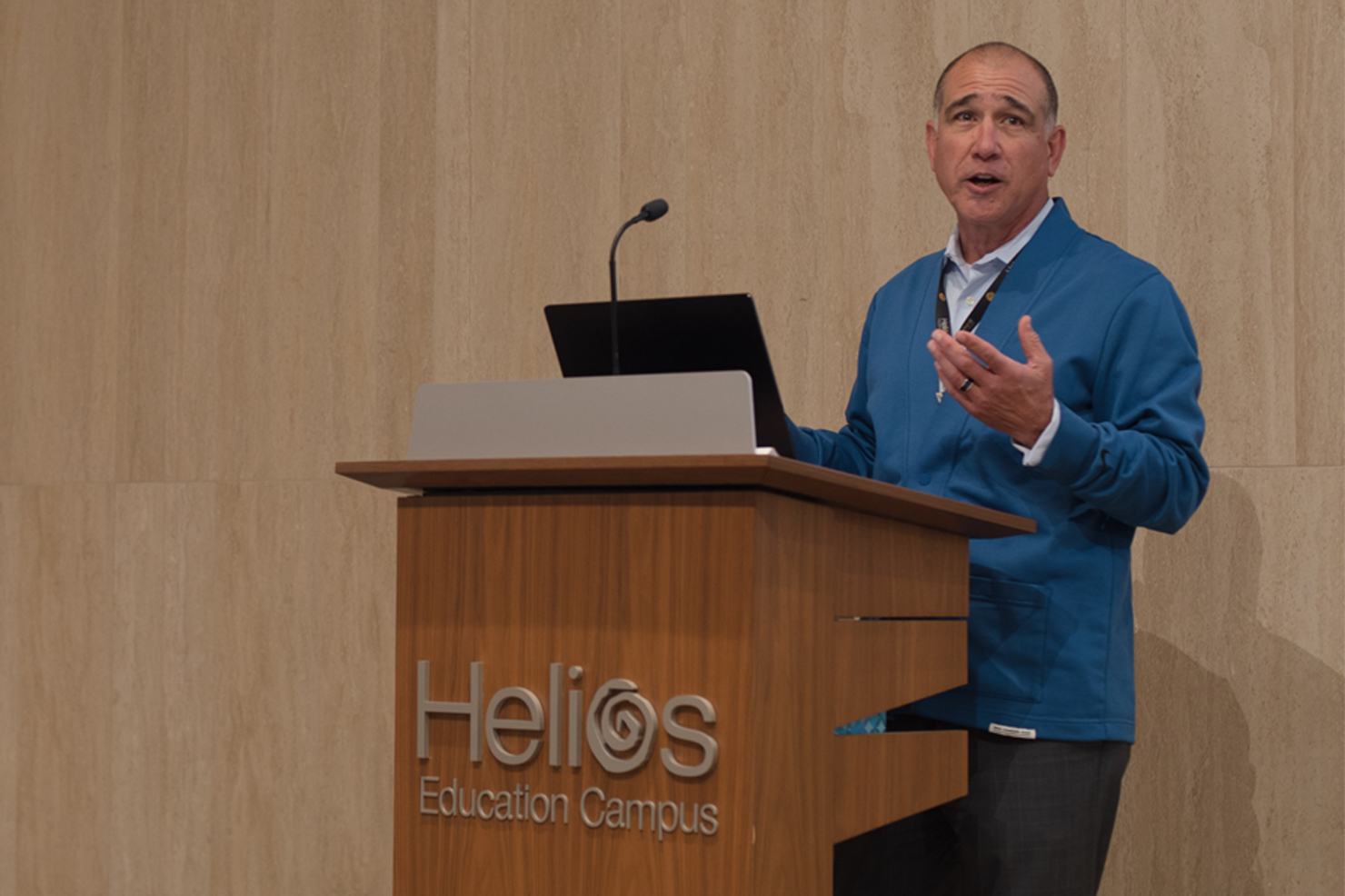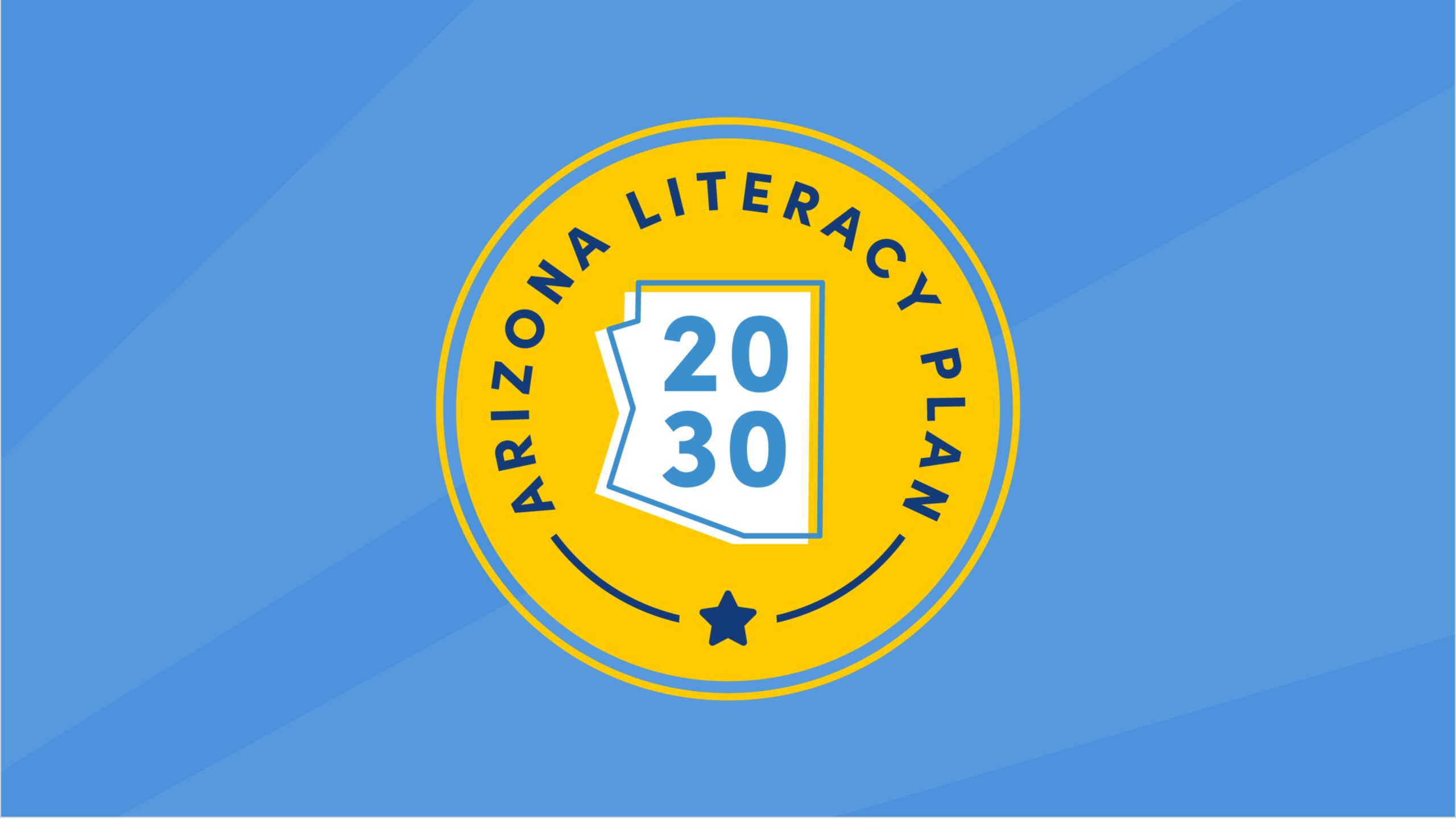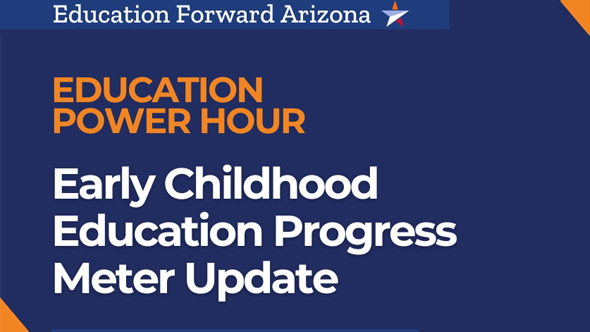April 21, 2021
Partners
Shanti Lerner Arizona Republic
Published Apr. 21, 2021
Sometimes the biggest changes start with the smallest gestures.
In the case of the Little Free Libraries, a nonprofit that seeks to promote the love of books and reading, the word ‘small’ is built into their DNA.
You may have seen Little Free Libraries (LFL) perched on people’s lawns, in front of apartment buildings, and even in front of commercial establishments. At first glance, they may appear to look like a mailbox or a fancy bird feeder. But when one peers through the small window of the structure, they won’t see letters or bird food, but books.
With the motto "Take a book, Share a book," LFL was the brainchild of Todd H. Bol, who created the first Little Free Library in 2009 in Hudson, Wisconsin. Built in honor of his mother who was a schoolteacher and lover of reading and books, the idea quickly caught the imagination of people all over the world. Today there are more than 100,000 Free Little Libraries in 108 countries.
Arizona has been no exception to this global book-sharing movement. There are 1085 Little Free Libraries registered in all corners of the state, and the numbers continue to rise.
How Little Free Libraries spread in Arizona
Much of that growth was fueled by Southwest Human Development, Arizona’s largest early childhood nonprofit, who partnered with Little Free Libraries eight years ago. The organization focuses on supporting young children from ages 1 to 5 years old and their families. They provide services such as child development and mental health, family support and child welfare, disability services, and early childhood literacy and language development. The nonprofit distributes over 120,000 books for free each year to children, families, communities and groups in need.
Jake Adams, chief development officer for Southwest Human Development started working for the non-profit in 2014. The group was looking for ways to create volunteer programs for their funding partners and their staff. One of the common requests was for some kind of team-building volunteer opportunities. After seeing a Little Free Library in his neighborhood, Adams, who has also been on the board of directors for LFL for three years, thought it would be the perfect idea for a team-building activity. It also fit with Southwest Human Development’s mission to provide an educational service for children and communities that lack the resources.
“It got me thinking, we are looking for volunteer opportunities and there are communities in need of books,” Adams said. “So what if we put these things (Little Free Libraries) together? So we got a carpenter to develop and design kits for us, then we started working with companies, civic groups, and to have them build and paint Little Free Libraries.”
Although the LFL may be cute and act as conversation pieces, they are far more than just ornamental. They can serve as vital tools to get books into the hands of both kids and adults who do not have access to reading materials.
According to LFL, over 30 million Americans adults lack basic literacy skills beyond the third-grade. Studies have shown that lack of access to books can have a significant impact on learning and development. According to an annual report released by the Little Free Libraries organization in 2019, adding books to a home environment can have significant and positive effects on child literacy. The report states that a child who comes from a home with just 25 books will, on average, complete two more years of school than a child from a home without books.
How much does a Little Free Library Cost?
One LFL can cost from $274 for the basic version to over $600 for a double-decker version that can hold more books. The cost originally led to LFL’s appearing mostly in middle and upper-income areas of Arizona.
To rectify this, Southwest Human Development partners with other community groups, organizations, companies, community and childhood centers and even apartment buildings who want to purchase or ask for a LFL for a specific area that is in need of books. They also work with Read On Arizona, a statewide organization of public and private groups that focuses on the creation of services to improve language and literacy results for Arizona’s children.
If you purchase through LFL or Southwest Human Development, your library will be registered with an official charter sign and number. By buying an LFL through these organizations, stewards will have access to grants and other benefits. People are also welcome to build their own LFL's using their own materials or even recycled supplies, but have to register their library separately.
Read On Arizona uses an interactive online viewing tool called MapLIT where it shows lower reading levels at certain grade levels. This tool helps Southwest Human development determine where they want to place the LFL.
“We realize that most of the Little Free Libraries organically go into middle and upper-income neighborhoods,” Adams said. “So little free libraries weren't just popping up in neighborhoods where kids don't have access to books."
“We do look at the data, but then we also work with folks who are close to (neighborhoods) and have boots on the ground that really know where the need is. These are the neighborhoods that we target to work with to support language development.”
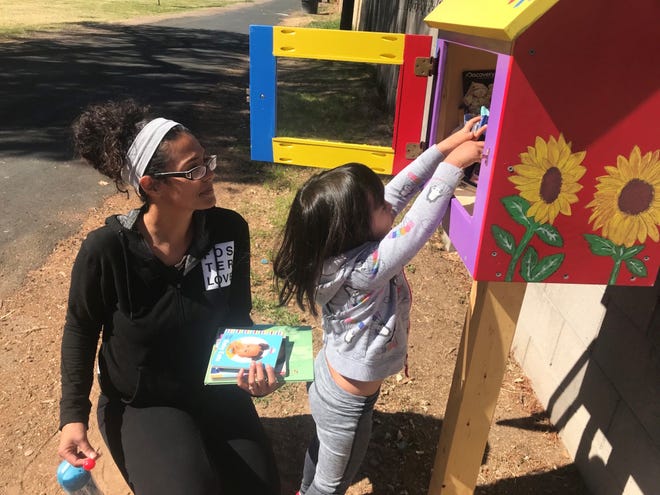
A child reaches for a book at a recently installed Little Free Library placed at Mariposa Park in Phoenix.
A community builder
Debra LaPlante, a former elementary school librarian who worked for the Alhambra School District for more than 20 years and at Ss. Simon and Jude Cathedral School for six years, has known about Little Free Libraries through her work as a librarian. But while working as a part-time librarian for Ss. Simon and Jude Cathedral, LaPlante learned that her co-worker had a Little Free Library of her own at her house in Central Phoenix. She wanted one just like it.
LaPlante saw a Facebook post this year by Phoenix City Councilwoman Betty Guardado’s office and Southwest Human Development about a grant to distribute several Little Free Libraries to anyone who wanted one. LaPlante immediately said yes. The LFL came delivered to her house already built and painted.
“I've always wanted one because I'm a librarian, so I still have a ton of books and my grandchild is the recipient of many books from me,” LaPlante said. “But with the Little Free Library it gives me access to share with the neighborhood. My husband and I put it up in the front yard and we have filled it in from there. It's just been (nonstop) of people stopping and trading out.”
LaPlante believes that Little Free Library offers more than just free books and a way to connect with the community. She believes that her community library helps remove the stigma of asking for help in people’s times of need. It’s something she saw with her own eyes while working as a librarian.
"When I was a public school librarian, there were always a couple of titles every year that were stolen from my library,” LaPlante said. “At the end of the year, I would do inventory and there would be books that hadn't been checked out that should have been on the shelf but weren't there. And they were always titles that kids didn't want somebody to know that they needed that book, but they really needed that book. For instance, titles like ‘What if your parents are in jail’ or ‘When a parent dies.’ There was always some child that needed access to that book and didn't even want to come to the front counter to check it out."
LaPlante also sees her library as a timely addition to her community, especially during the pandemic when regular libraries have been shut down. Her LFL has not only served to provide access to reading materials, but it has also provided her neighbors with a sense of community.
“I think with a lot of people not being able to go to the public libraries, they couldn’t go much anywhere else besides walking around their own neighborhood and noticing the things like the Little Free Libraries."
“I think the pandemic has made people want to reach out to their neighbors and make sure everyone is okay. Make sure that there is something that they can do for them. I think there has been a lot more interest in the Little Free Libraries because of that.”
“We often have these conversations about our Little Free Libraries,” Adams said. “Is it a literacy builder, or are they a neighborhood builder, community builder? And we don't really fight about it. We think both of them make sense because it really does bring neighborhoods together.”
Some of LaPlante’s friends who also own LFL’s have reported that their kiosks have become more than free book sources. Some people have begun to leave canned goods and other non-perishable food items for people in need. LaPlante plans to offer free fruit when her fruit trees are ready for harvest.
Part learning aide, part community builder, the Little Free Library movement along with the work of Southwest Human Development speaks to people’s desire for something local that can enrich their community, especially in times of crisis. LaPlante believes it’s an idea that can only continue to grow.
“I think the mission of Little Free Libraries is to connect kids and adults with books who might not otherwise have resources to find them or go get them, and I think is something we are going to see more and more in the communities,” she said. “Cities are getting bigger but people are wanting things smaller, more intimate and something close by. If you don’t have transportation close by to where you live this is going to be helpful to you.”
How to build a Little Free Library
Companies or individuals who want to support this book-sharing movement can work with Southwest Human Development and purchase a LFL Library kit for $600 that comes with the materials to build the structure or can pay $1000 for a built and decorated library. Besides paying for the materials, some of these funds go to local programs and services that help more than 140,000 children across the state. People interested can also go directly to https://littlefreelibrary.org/ and purchase a LFL and learn more about their mission. LFL's can also be built with recycled materials. To find a LFL in your neighborhood or anywhere in Arizona visit https://littlefreelibrary.org/ourmap/.
Original article can be read here.
